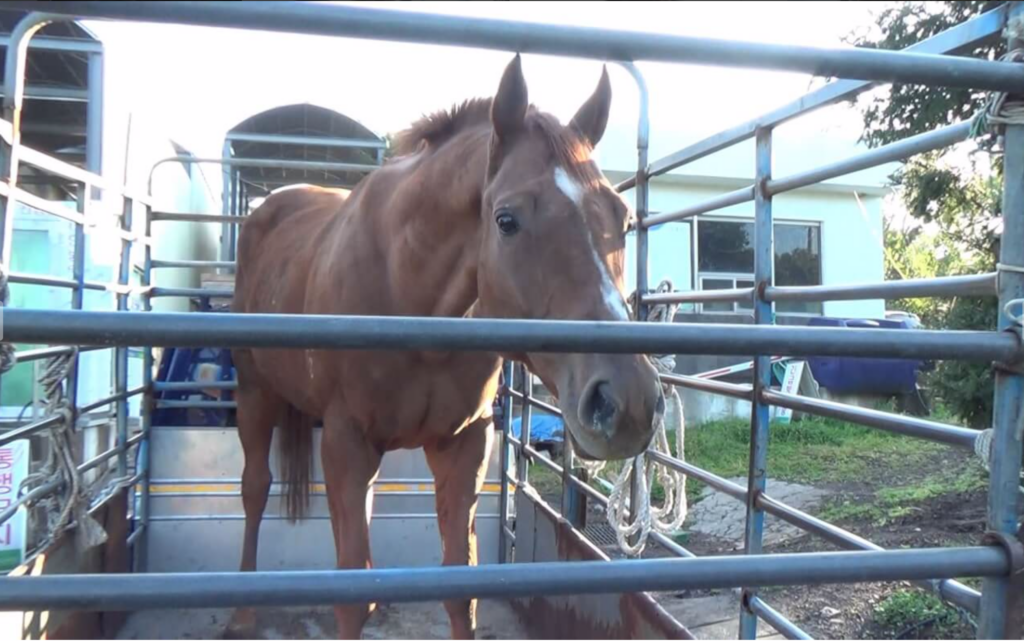Inside South Korea’s Largest Horse Slaughterhouse
UPDATE, AUGUST 2019: Police in Jeju, South Korea, concluded their investigation and have charged the slaughterhouse and three of its workers with killing horses in full view of other horses, in violation of the Animal Protection Act. Read more about this here.
__
South Korea, where horsemeat restaurants abound, hopes to become a major player in international horse racing – Koreans bet more than AUD$11 billion annually on races, and the Korea Racing Authority (KRA) aggressively breeds and brings in new horses from around the world, including Australia.
Many of these horses become injured or don’t succeed. A KRA official stated in 2018 that of the 1,600 horses “retired” from the racing industry each year, only 50 (or about 3%) are deemed suitable for other equestrian uses.
Where do all the rest go?
Horse flesh is sold at restaurants and grocery stores, and horse fat or “oil” is used in beauty products. PETA US investigators travelled to Jeju, South Korea, to expose the fate of these Australian horses and their offspring.
Death Sentences
The investigators captured footage of horses at the largest horse abattoir in South Korea on nine dates between April 2018 and February 2019 and were able to identify 22 Thoroughbred racehorses. Many either were born in America or had American heritage.
Three were born in Australia. Here they are, minutes before being killed:
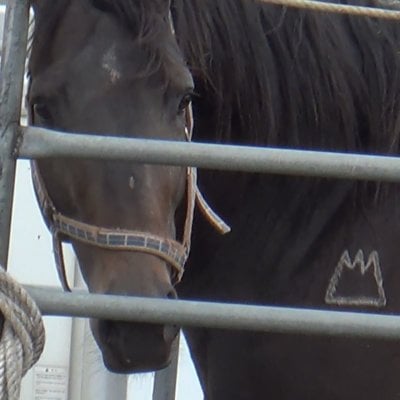
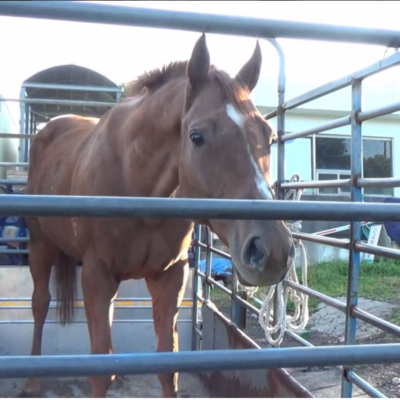
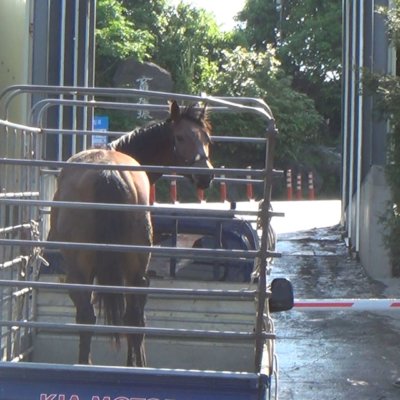
Researchers looked through the Korea Racing Authority’s records and found that since the 1970s, more than 3,000 horses from Australia or from Australian parents have been slaughtered for meat. Even the stallion Street Cry – who sired Australian racing legend Winx – fathered a foal who was killed for meat in Korea.
‘Praise the Winner’ and Eat the Loser
Seungja Yechan means “Praise the Winner” in Korean – little consolation to this Australian-born son of legend Medaglia d’Oro, filmed at the Nonghyup abattoir on 8 May 2018. Freeze brands on his shoulders tipped off the investigators to his identity. Records show that he raced four times and was scratched from his fifth race. Unlike half-sisters Rachel Alexandra and Songbird, who won $4.99 million and $6.68 million, respectively, Seungja Yechan didn’t earn a penny (unless you count the $50 per kilogram charged for his flesh at the supermarket).
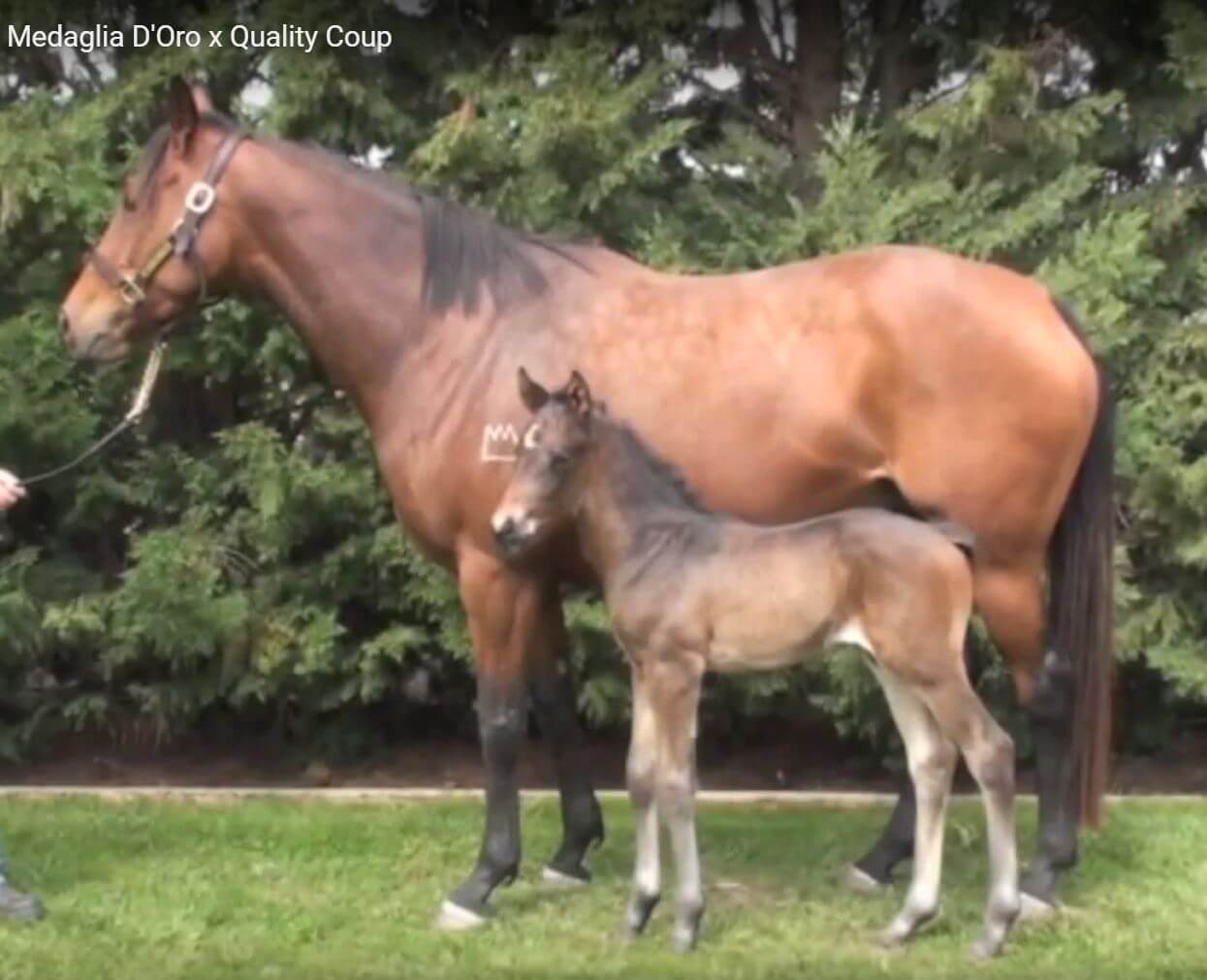
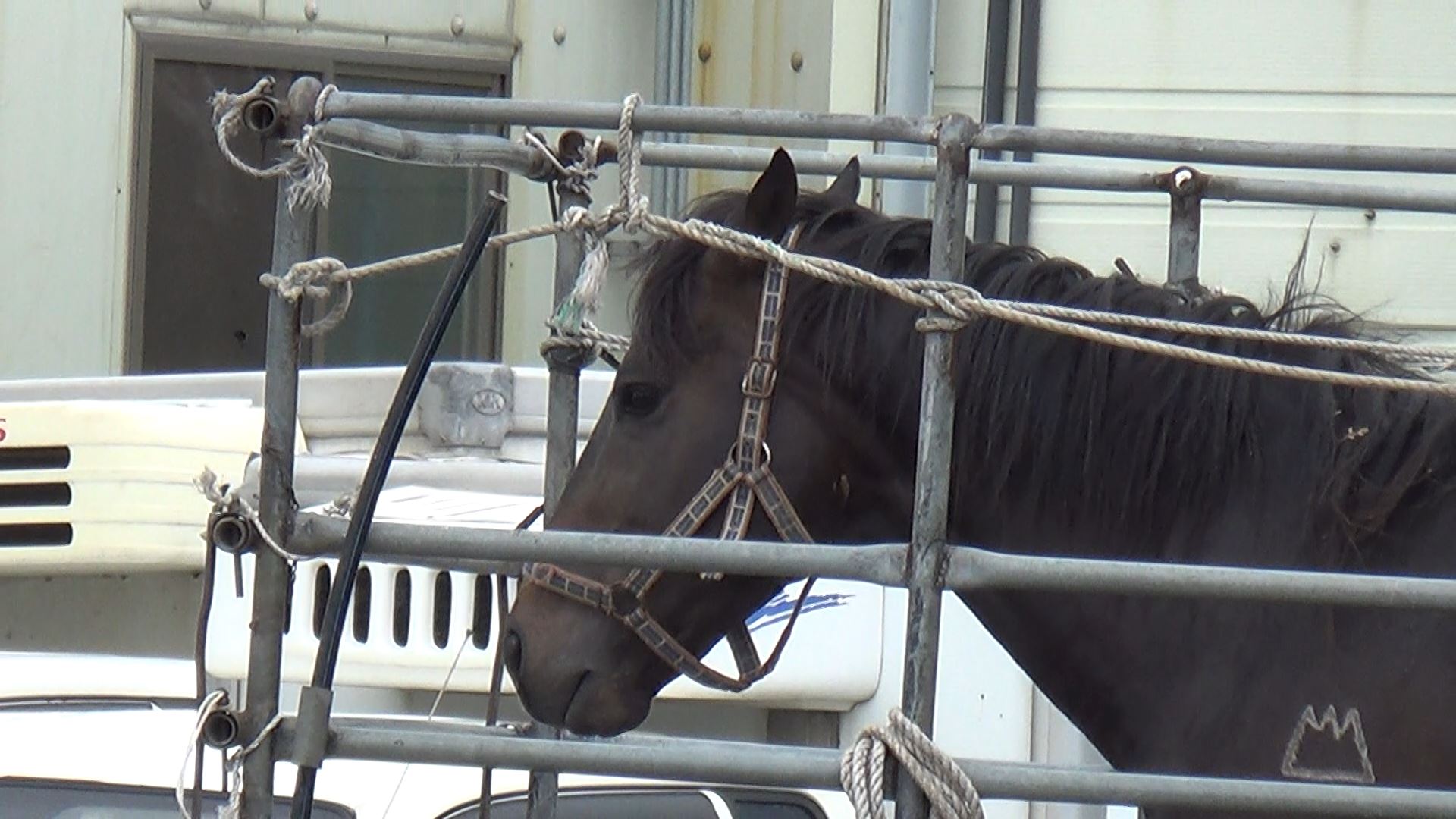

Horse Racing: Not the ‘Sport of Kings’ – Just Another Livestock Industry
Part of the Ministry of Agriculture, Food and Rural Affairs (MAFRA), the KRA tries to gain respect for South Korea as a serious racing nation while also supporting horsemeat consumption. KRA’s chair stated in 2012, “Unlike other livestock raised mostly for eating, horses can meet multiple purposes.… [H]orse meat is good and we will work on ways of encouraging people to eat it in the future.” MAFRA’s recent five-year plan for bolstering the horse industry included promoting “horse meat, cosmetics and other commercial products”. An official said, “Horse breeding will create jobs, such as horse trainers and veterinarians. Horse meat and other products made from horses will be more readily available.”
Some of the horses arriving at the abattoir appeared to have come straight from the racetrack – one of them, Cape Magic, arrived on a Monday morning with a huge bandage on his leg. Records showed that he’d raced on Friday in Busan – and he was killed less than 72 hours after finishing out of the money.
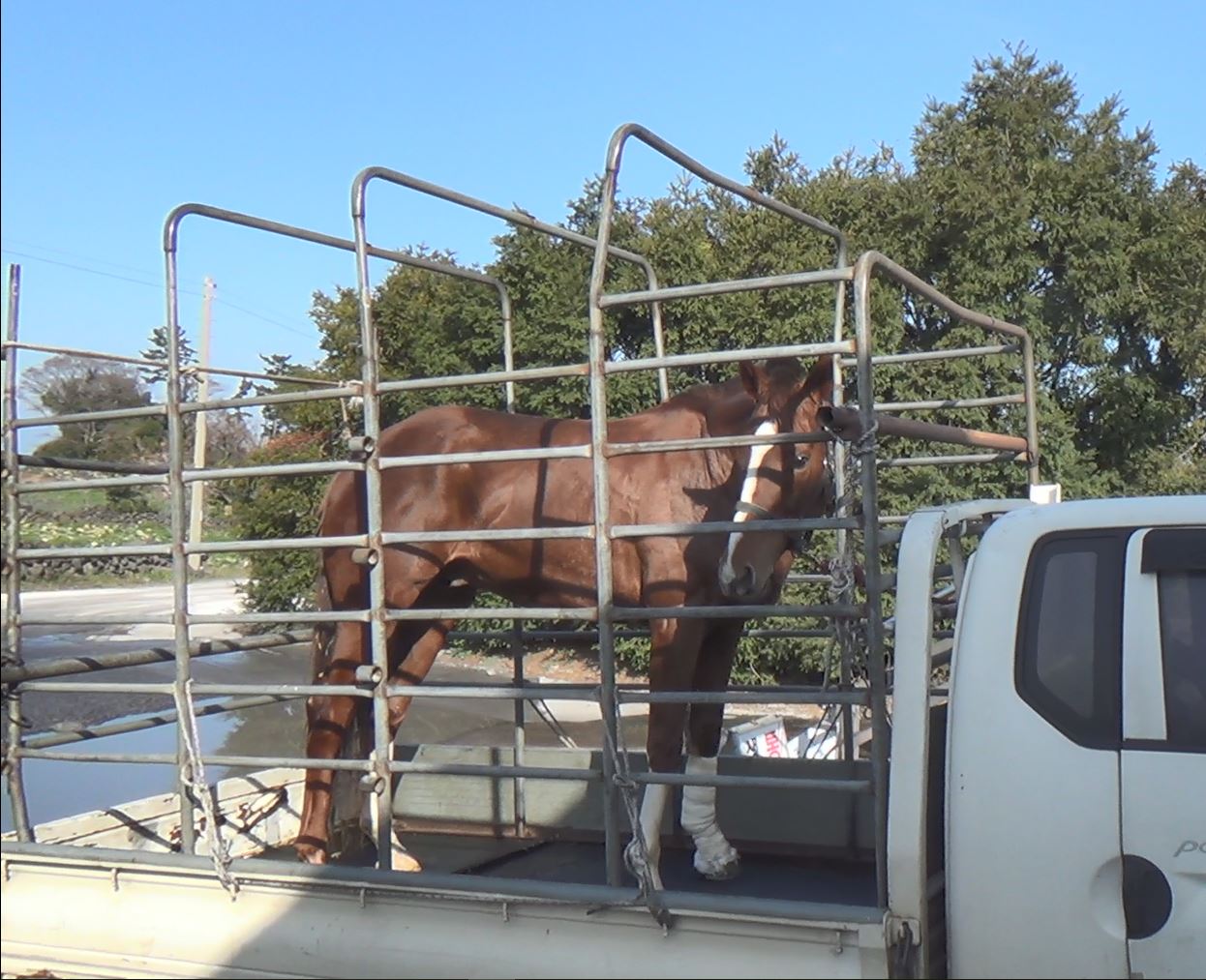
Other Thoroughbreds seen at the abattoir were ungroomed, mud-covered, matted, or patchy. After seeing 4-year-old filly Winning Design arrive in poor condition, the investigators visited the farm that she had just come from.
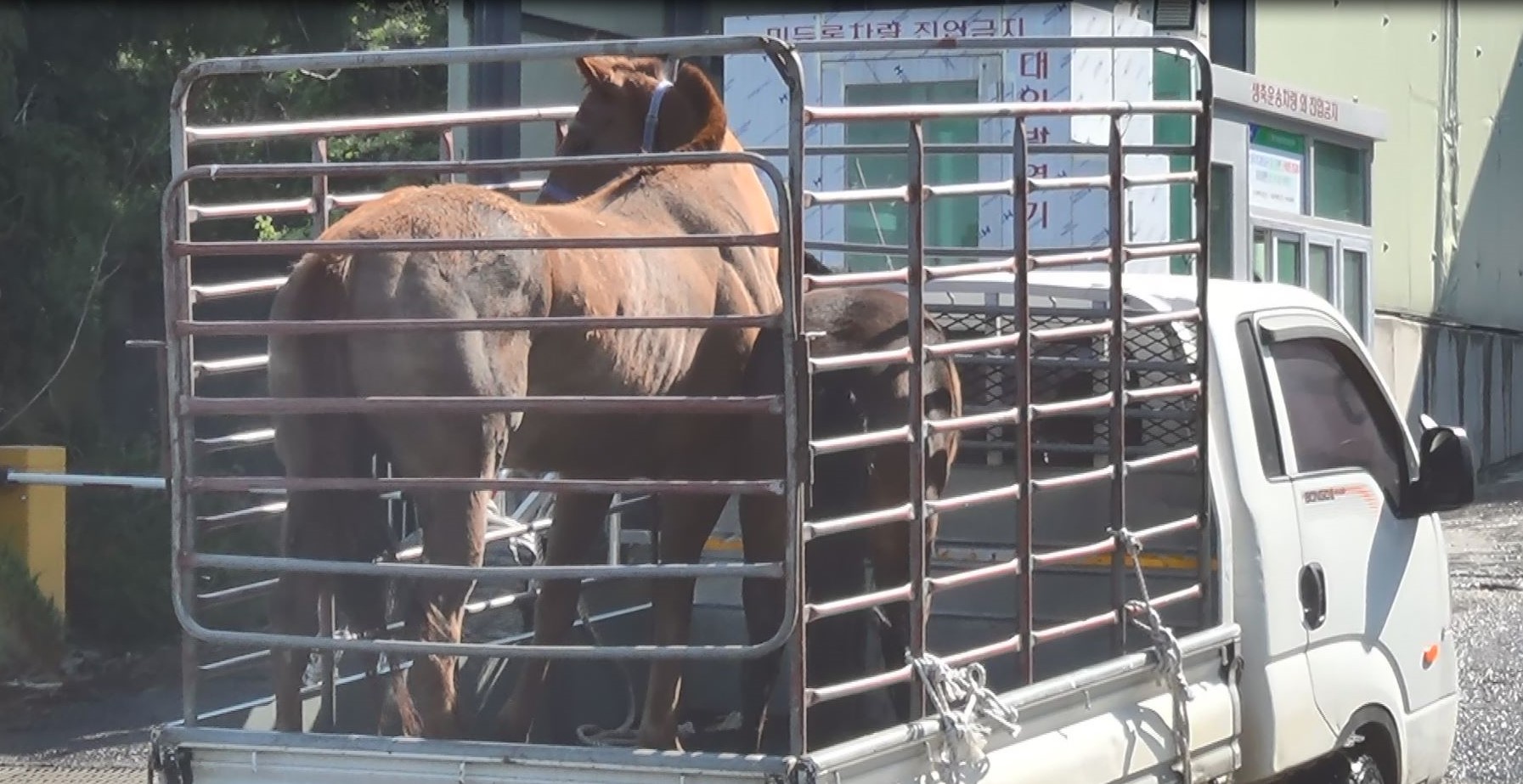
Owned by a family that also operates a horsemeat restaurant, the farm confined dozens of dirty, unkempt horses to small manure-filled pens and stalls. The stench of faeces predominated. One thin horse looked gravely ill – she had an ulcerated eye, hair loss, and sores.
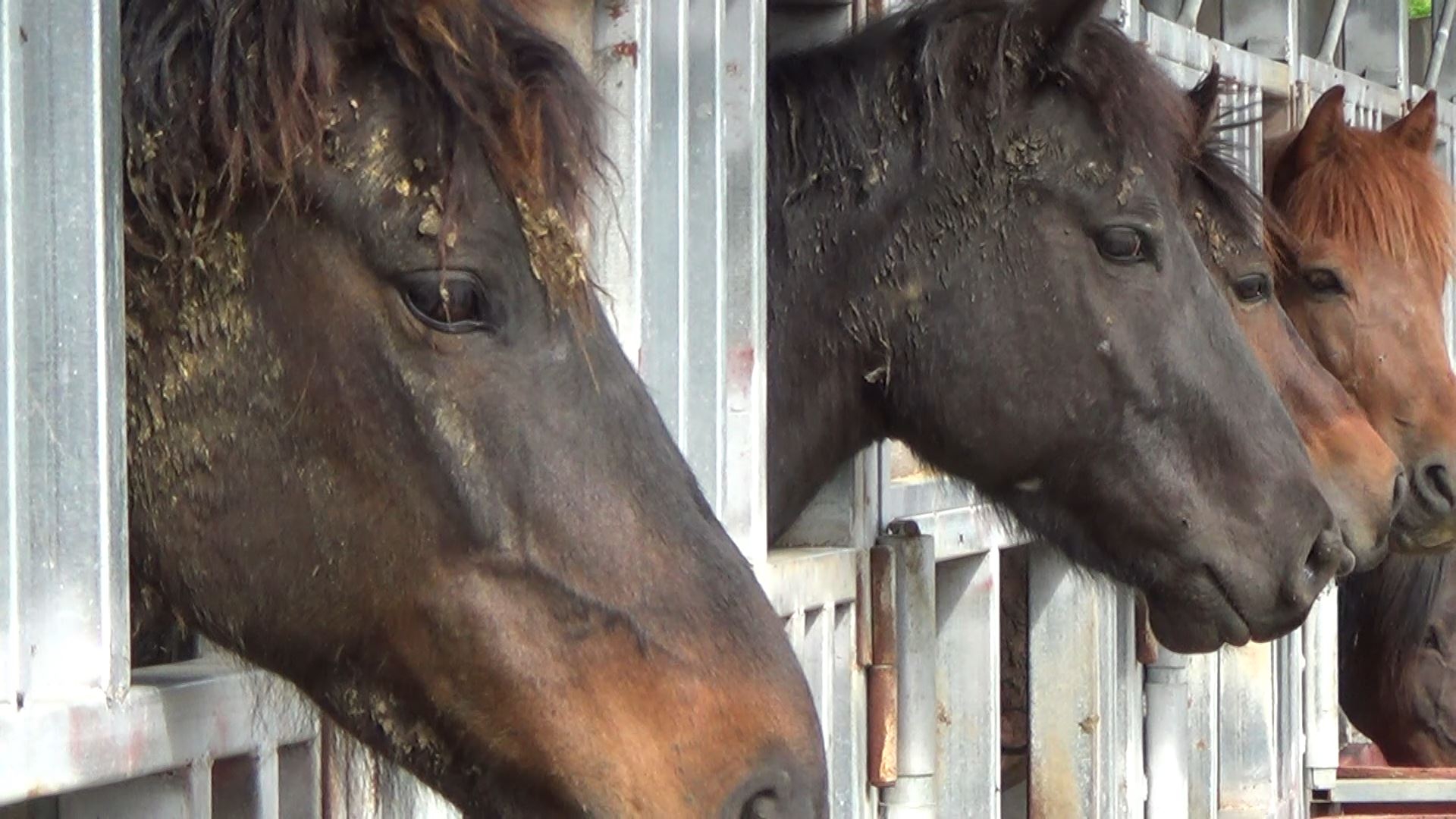
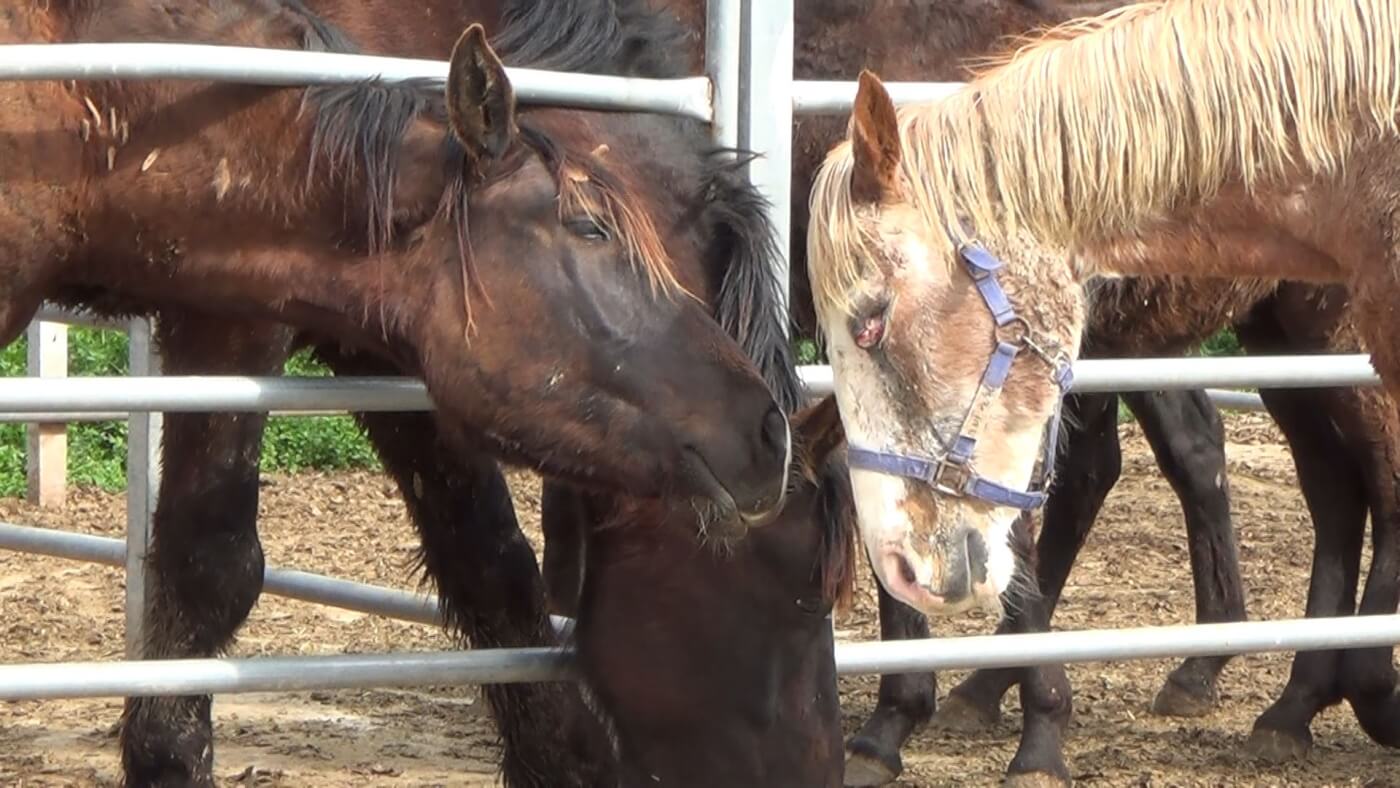
At the abattoir, the investigators were shocked to see workers beating the horses with sticks to get them to turn around and step out of the trucks and through the doorway. The horses huddled together, clearly panicked, as the men whacked them, including in the face.
Slaughter expert Dr Temple Grandin watched the footage and concluded, “The handling of the horses during truck unloading was not acceptable. Hitting a horse on the face is abusive.”
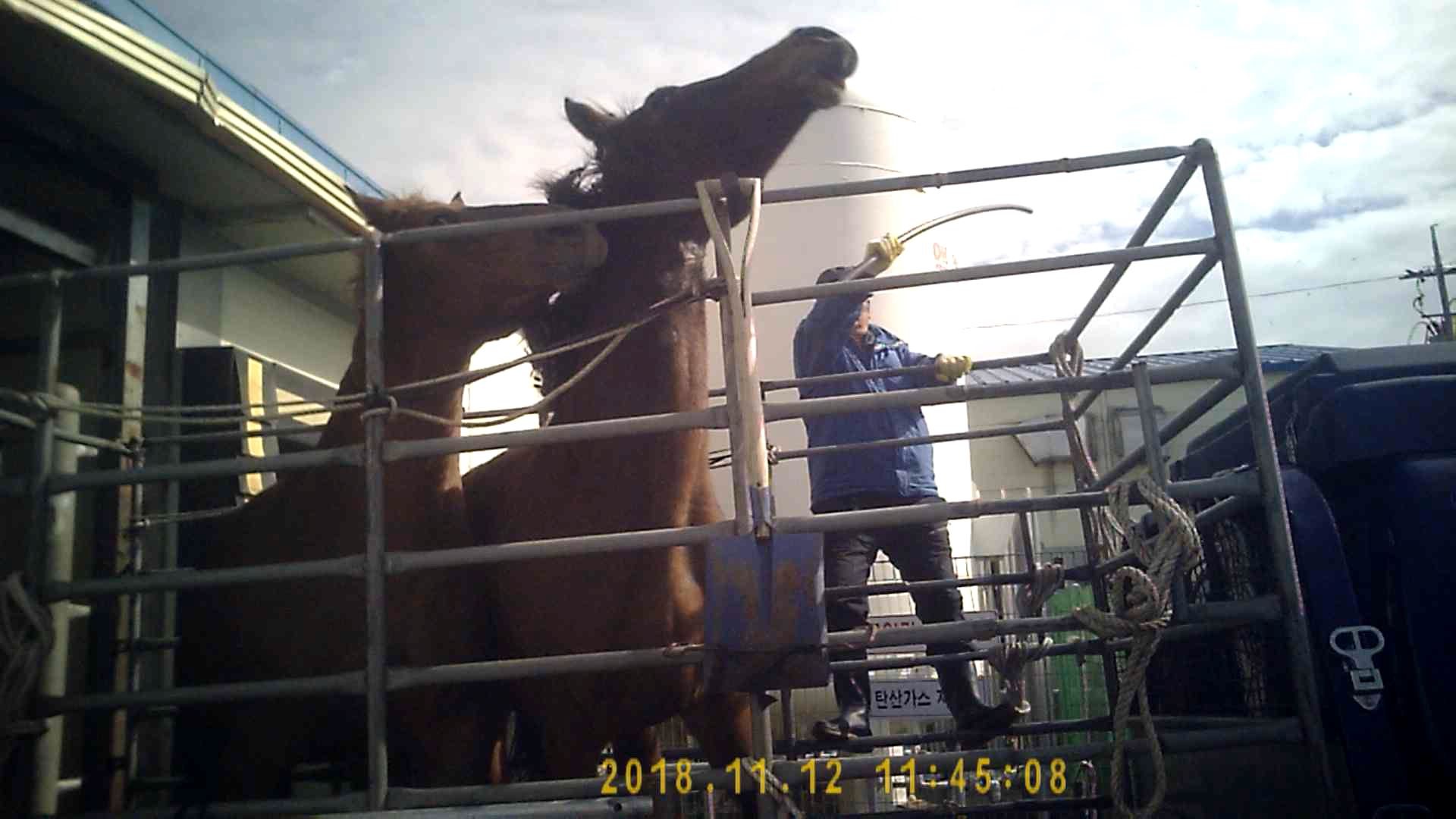
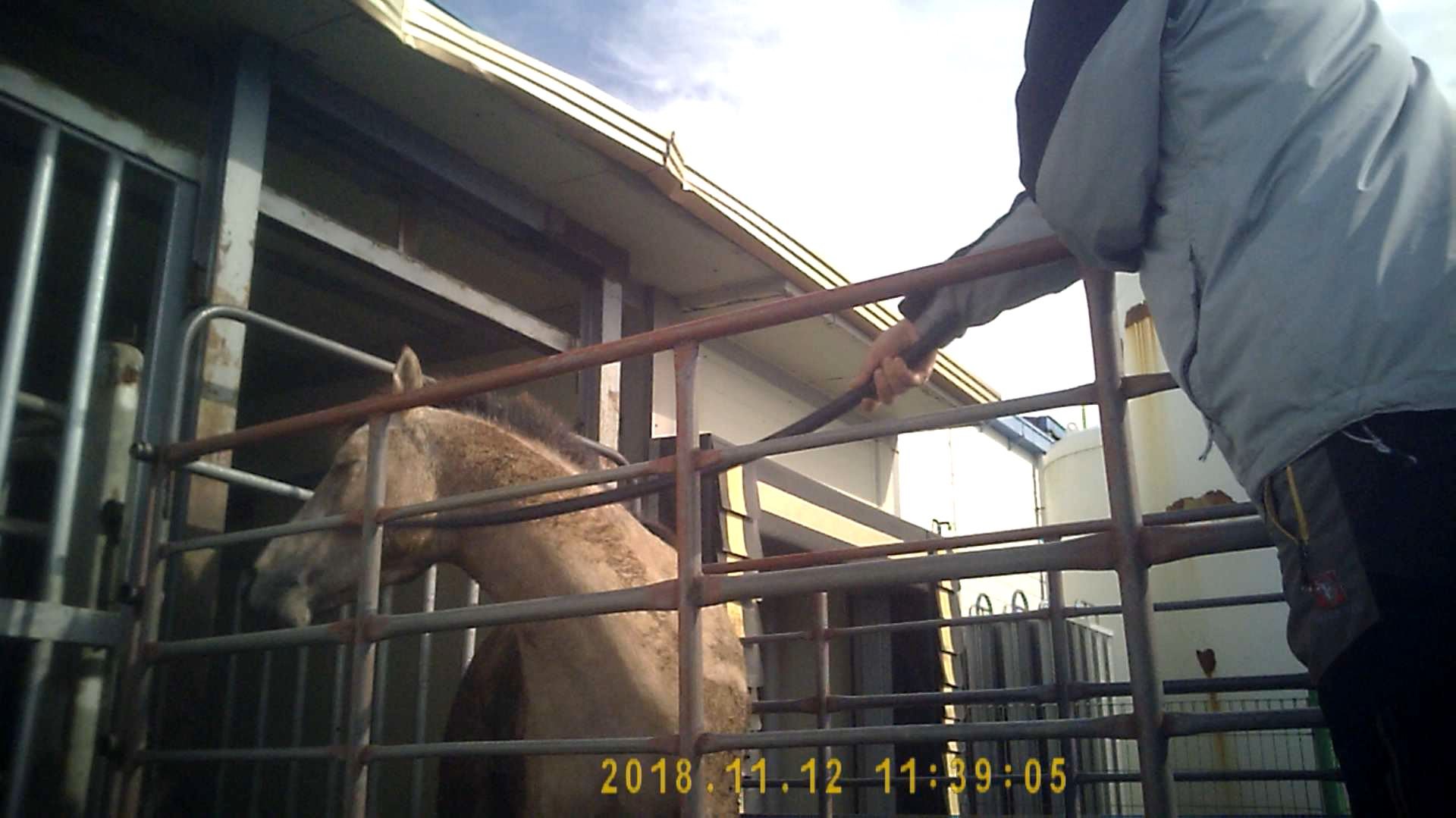
Inside the abattoir, workers prodded horses up chutes and into a kill box designed for cattle. An official with the Animal and Plant Quarantine Agency told The Korea Observer, “We knock out horses with the same hammer that we use for cows. Things may get a little messy if they do not pass out at the first blow.”
However, beyond the obvious anatomical differences, horses are also generally more nervous and skittish and may jerk away when a captive-bolt gun comes at their head. Inadequately restrained horses make it very difficult for the slaughterer to administer an accurate shot. Even worse, many of the horses arrived in pairs, and the investigator saw filly Royal River shot right in front of her companion, Air Blade, who had to see her being hoisted into the air. This violated the Korean Animal Protection Act, and PETA US and a Korean animal-protection group have submitted a complaint about this and the beatings to the District Public Prosecutors’ Office in Jeju City.
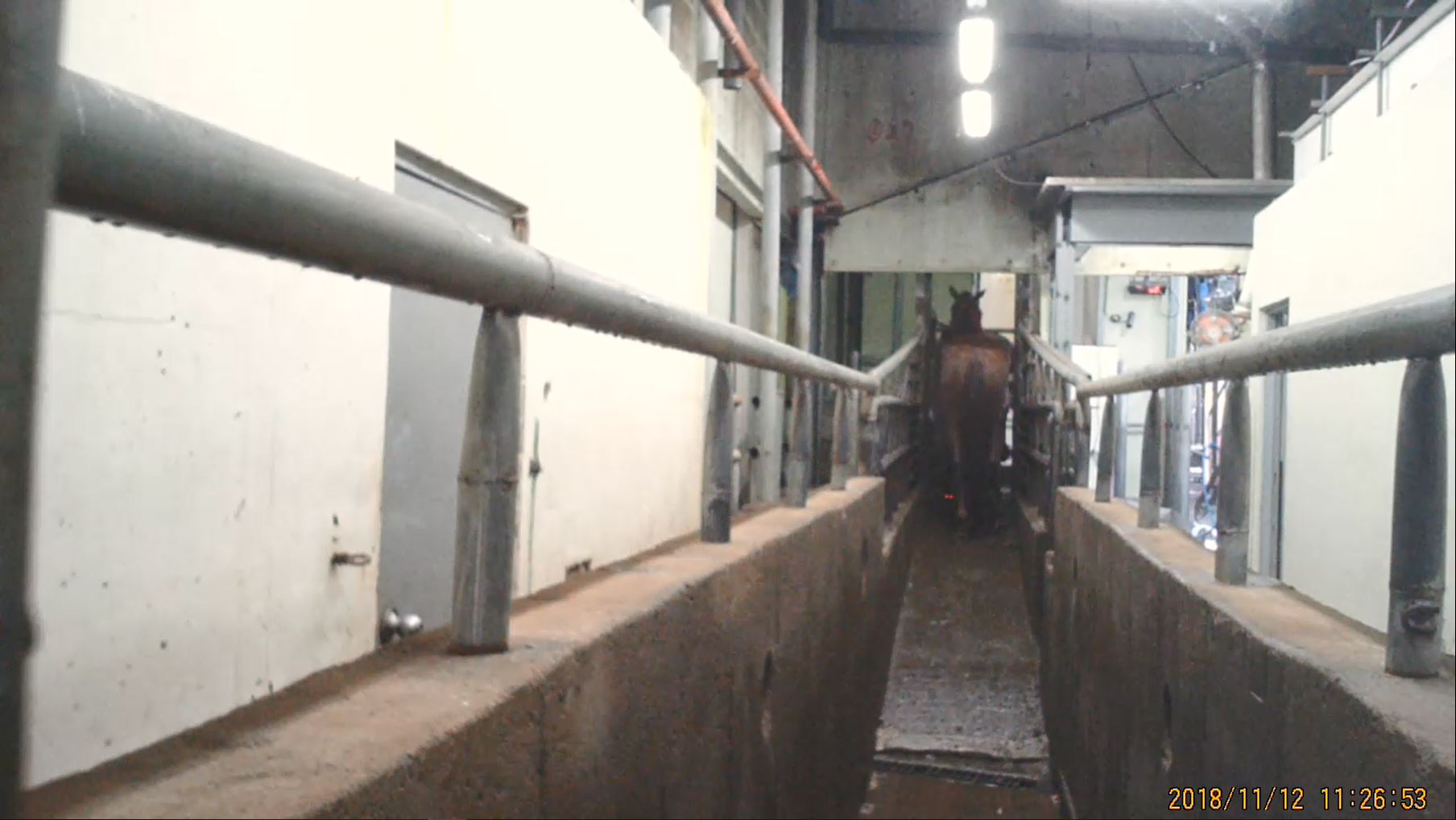
Breeding Factories
The KRA’s ambition to raise the quality of South Korean racing has led it to import thousands of American and Australian horses for racing and breeding in the past 10 years. At the KRA’s massive breeding facility and on private farms across the country, stallions are treated like semen machines, made to mount mares multiple times a day in the breeding season. Mares are restrained, washed, tail-wrapped, lubricated, and led to a chest board. Workers apply twitches – rope loops twisted tightly with a rod – to the mares’ upper lips to hold them in place. Others strap breeding boots onto the mares’ back feet so they can’t injure the stallions by kicking. Injuries appeared to be common.
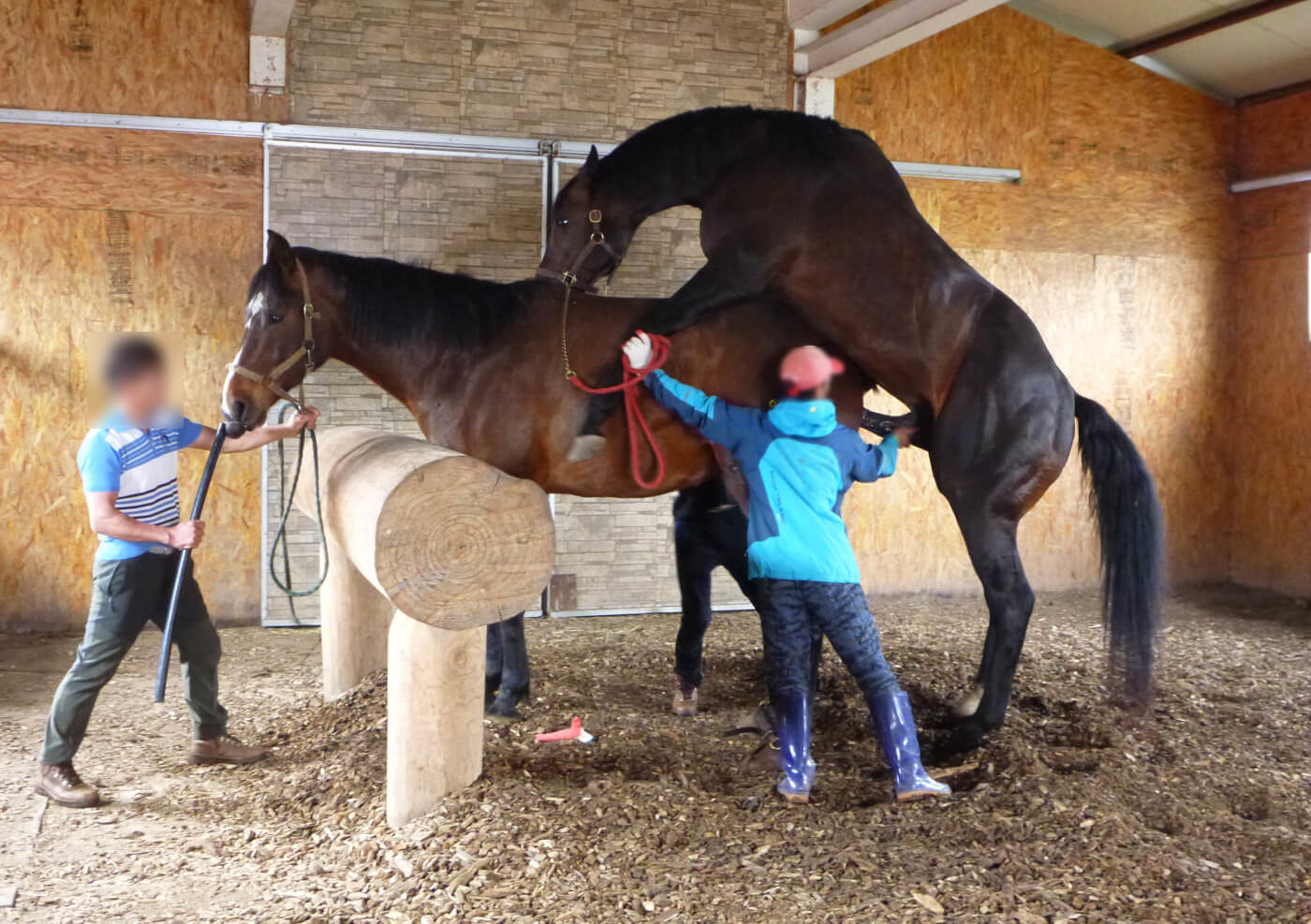
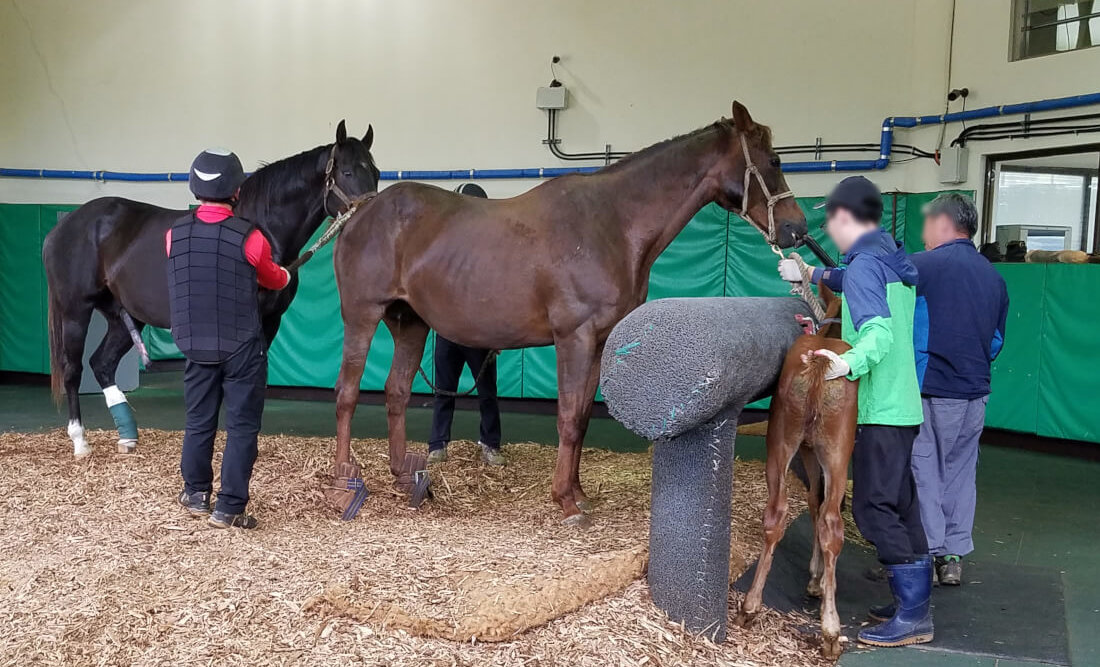
You Can Help Stop This
Join us and demand that the KRA implement a comprehensive retirement plan for unwanted horses in South Korea.
People who care about animals are turning their backs on horse racing in Australia and around the world. The abuse and slaughter will only end when we all recognise that these animals are not ours to use for entertainment.
